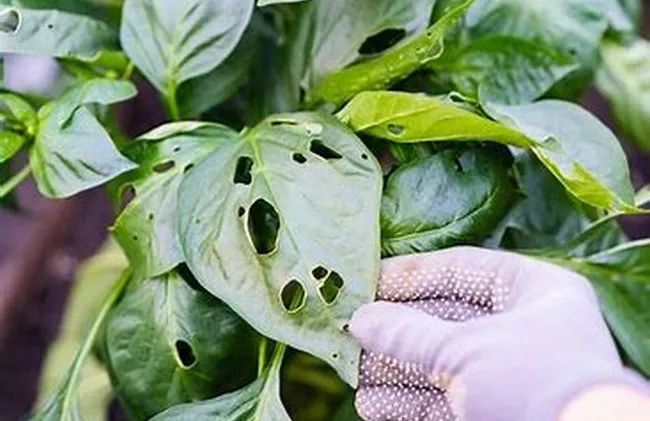Plant pests are organisms that can cause significant damage to plants, leading to reduced growth, poor health, and even plant death. These pests include insects, mites, fungi, bacteria, viruses, and nematodes. Understanding the types of pests and their behaviors is crucial for effective prevention. Common plant pests like aphids, spider mites, whiteflies, and thrips are usually visible, while others like fungal spores or nematodes require closer inspection.
The Importance of Plant Health
Healthy plants are less likely to attract pests or suffer severe damage when infested. By focusing on maintaining the overall health of your plants, you create a natural defense system. Healthy plants can resist pests better, recover faster, and even deter some pests through natural repellents. Ensuring your plants are in good condition is the first step in preventing pest infestations.
Choosing the Right Plants
Selecting pest-resistant varieties is a proactive measure in pest prevention. Some plants are naturally more resistant to pests due to their physical characteristics or chemical properties. For example, marigolds are known to repel nematodes, while lavender can deter certain insects. Researching and choosing the right plants for your garden can reduce the likelihood of pest problems.
Proper Soil Preparation and Maintenance
Good soil health is fundamental in preventing plant pests. Soil rich in organic matter supports healthy root development and improves plant immunity. Composting, mulching, and regular soil testing can help maintain soil health. Avoid over-fertilizing, as this can make plants more attractive to pests. Aerating the soil and ensuring proper drainage also help prevent conditions favorable to pests.
Watering Wisely
Watering practices significantly impact pest prevention. Overwatering can create a moist environment that attracts pests like fungi and mold, while underwatering can weaken plants, making them more susceptible to pests. Water plants early in the morning to allow leaves to dry out during the day, reducing the chances of fungal infections. Using drip irrigation instead of overhead watering can also help keep foliage dry.
Regular Monitoring and Early Detection
Regularly inspecting your plants allows for early detection of pest problems. Look for signs such as yellowing leaves, holes, wilting, or sticky residue, which may indicate pest activity. Early detection is critical in managing pests before they spread. Using magnifying glasses can help spot tiny pests like mites. Keeping a garden journal to track plant health and pest occurrences can also aid in early detection.
Using Natural Predators
Introducing natural predators is an eco-friendly way to control pests. Ladybugs, lacewings, and predatory beetles can help manage aphids, mites, and other pests. Birds and bats can also be beneficial in reducing pest populations. Planting a variety of flowers that attract beneficial insects can encourage natural pest control in your garden. Ensure your garden provides habitats for these natural predators to thrive.
Companion Planting
Companion planting is the practice of growing certain plants together to deter pests. For example, planting basil near tomatoes can repel whiteflies, while garlic planted among roses can deter aphids. The strong scents of certain plants can mask the scent of other plants, confusing pests. Researching compatible plants and their pest-repelling properties can enhance your garden’s natural defenses.
Proper Pruning and Hygiene
Maintaining good garden hygiene is essential for preventing pests. Regularly remove dead or diseased plant material, as these can harbor pests and diseases. Pruning helps improve air circulation and light penetration, reducing the chances of fungal infections. Clean pruning tools before and after use to prevent the spread of pathogens. Disposing of plant debris properly can also reduce pest habitats.
See Also: How To Protect Tomato Plants From Pests
Organic Pest Control Methods
Organic methods are effective in managing pests without harming beneficial insects or the environment. Neem oil, insecticidal soap, and diatomaceous earth are natural products that can control pests. These methods target pests without leaving harmful residues. Applying organic treatments in the early morning or late evening can minimize impact on beneficial insects. Always follow label instructions to ensure safe and effective use.
Chemical Pest Control: A Last Resort
Chemical control should be a last resort due to its potential harm to beneficial insects, plants, and the environment. If chemical pesticides are necessary, choose those with the lowest toxicity and apply them carefully. Spot-treat affected areas rather than spraying the entire plant. Always wear protective clothing and follow safety guidelines when using chemical pesticides. Consider consulting a professional for advice on safe pesticide use.
Building a Healthy Ecosystem
Creating a balanced ecosystem in your garden can naturally reduce pest problems. Incorporate a variety of plants to attract diverse wildlife, including pollinators and pest predators. Avoid monocultures, as they can create conditions conducive to pest outbreaks. Composting and using organic mulches can improve soil health, promoting a robust plant ecosystem. Encouraging biodiversity helps maintain a natural balance, reducing the need for chemical interventions.
Seasonal Care and Maintenance
Each season presents different pest challenges. Adjusting your care routine according to the season can help prevent pests. In spring, monitor for early signs of pests as plants begin to grow. In summer, watch for heat-loving pests and ensure proper watering practices. Fall is a good time to clean up debris and prepare for overwintering pests. In winter, protect plants from cold damage and inspect for pests that may be sheltering indoors.
Educating Yourself and Staying Informed
Staying informed about plant pests and prevention techniques is crucial for maintaining a healthy garden. Join gardening clubs, attend workshops, and read reputable gardening books and websites. Sharing knowledge with fellow gardeners can provide valuable insights into local pest issues and prevention strategies. Continuous learning and adaptation are key to effective pest management.
Conclusion
Preventing plant pests requires a comprehensive approach that includes proper plant selection, soil care, watering practices, monitoring, and the use of natural and organic methods. By creating a healthy garden ecosystem and staying informed, you can reduce the risk of pest infestations and promote a thriving garden. Taking a proactive approach to pest prevention not only protects your plants but also supports a healthier environment.


